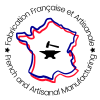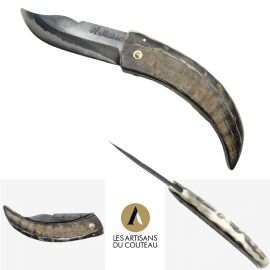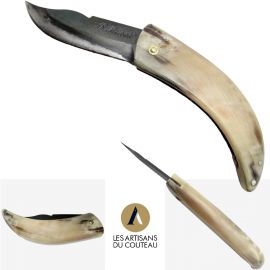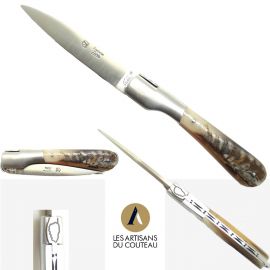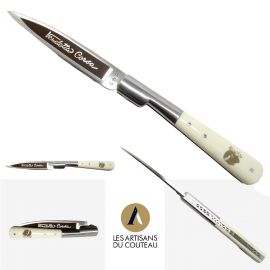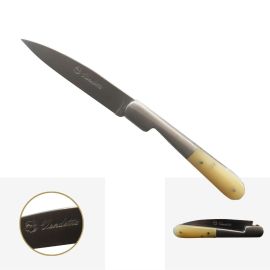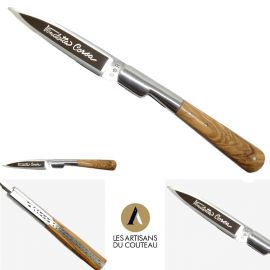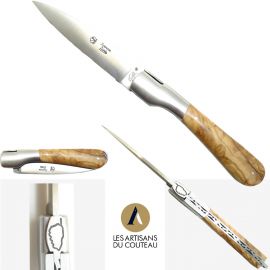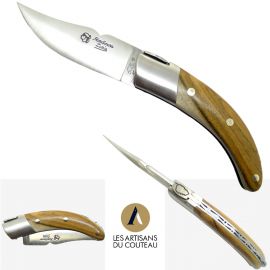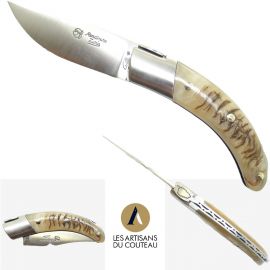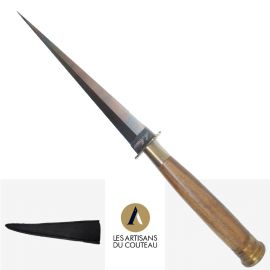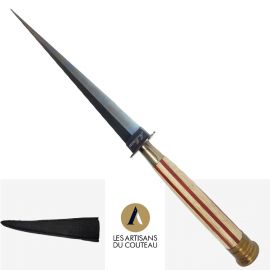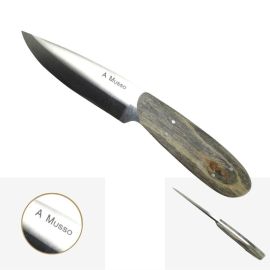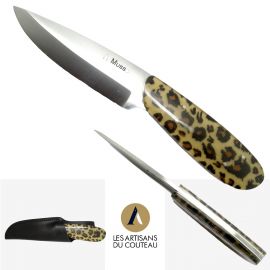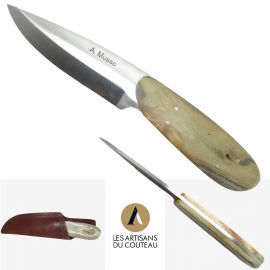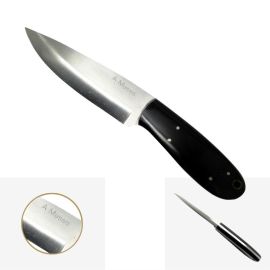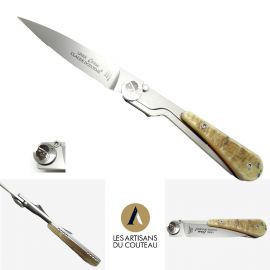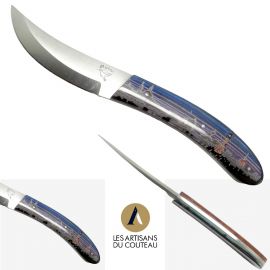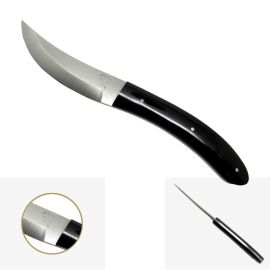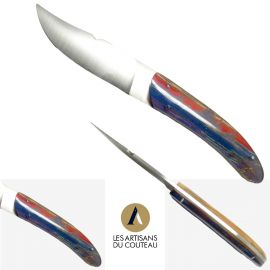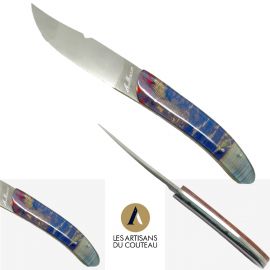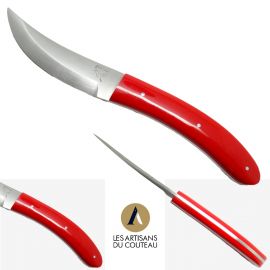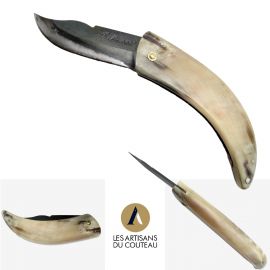
What is a Corsican knife?
Corsica doesn't have just one, but several different knives with equally different uses. What they have in common: exceptional robustness and resistance to the ravages of time, and manufacturing using materials from the local area, such as mainly horn or olive wood.
Living off of livestock and agriculture until the 19th century, the Corsicans created a knife as early as the 2nd century that could assist both shepherds and hunters. A mix of tool remnants, animal horns, bones, and other local materials gave birth to the legendary Corsican knife with its unique shapes and often adorned with the famous head of the Moor.
The knife, traditionally used for milking animals, skinning game, or for hunting, turned into a white weapon as early as the 16th century with the birth of the vendetta knife. Since then, the Corsican knife has only gained popularity among enthusiasts of cooking, self-defense, outdoor activities, as well as aesthetes.
What are the different Corsican knives?
There are as many Corsican knives as there are Corsican regions. The most famous among them is certainly the vendetta. Adorned with an inscription in Italian and a head of the Moor, the vendetta is easily recognizable. The blade has a particular aesthetic: each groove of the plates is visible and forms a pattern on the entire blade.
Why adopt a Corsican knife?
Although initially only local materials were used, the knife craftsmen's blacksmiths continue to produce knives with stronger and more aesthetic materials than before.
Handle in ebony wood, fruit tree wood, or even inflamed buffalo horn, stainless steel blade with a smooth reflection or Damas blade with silver arabesques. Each Corsican knife forged by our craftsmen is a unique piece.
Our professionals, certified as the best craftsmen in France, delicately shape them by hand using traditional methods to obtain a blade with unparalleled solidity and stunning rendering. It is not these knives that you will see breaking at the slightest shock or losing their shine due to moisture.
Passed down from generation to generation, the Corsican knife has managed to nestle in the hearts of many people. Among them, enthusiasts of knives, cooking, fishing, and other outdoor activities, not forgetting art enthusiasts.
Given their low carbon content, Corsican Damascus knives are particularly resistant, and their aesthetics will not fail to move the souls of aesthetes. What more could you ask for? Under the skilled and expert hands of our blacksmiths, many other types of Corsican knives are born and are just waiting for you to shine. What are you waiting for to order one?



